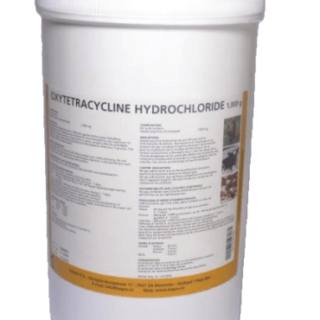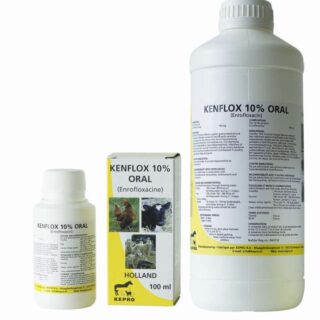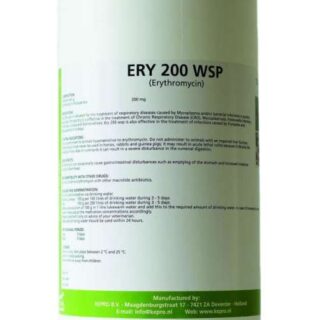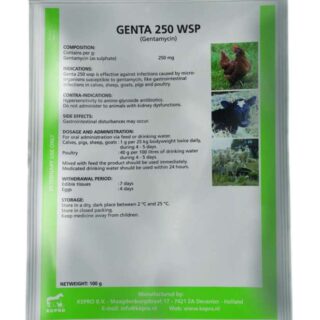Your cart is currently empty!

Single Product
Gentadox WS 100g
Composition: Contains per gram powder: Doxycycline hyclate 100 mg. Gentamicin sulphate 50 mg. Excipients ad 1 g. Description Doxycycline belongs to the group of tetracyclines and acts bacteriostatic against many Gram-positive and Gram-negative bacteria, like Bordetella, Campylobacter, E. coli, Haemophilus, Pasteurella, Salmonella, Staphylococcus and Streptococcus spp. Doxycycline is also active against Chlamydia, Mycoplasma and Rickettsia spp. The action of doxycycline is based on inhibition of bacterial…
Description
- Composition:
- Contains per gram powder:
-
Doxycycline hyclate100 mg.
-
Gentamicin sulphate50 mg.
-
Excipients ad1 g.
Description
Doxycycline belongs to the group of tetracyclines and acts bacteriostatic against many Gram-positive and Gram-negative bacteria, like Bordetella, Campylobacter, E. coli, Haemophilus, Pasteurella, Salmonella, Staphylococcus and Streptococcus spp. Doxycycline is also active against Chlamydia, Mycoplasma and Rickettsia spp. The action of doxycycline is based on inhibition of bacterial protein synthesis. Doxycycline has good affinity towards the lungs and is therefore especially useful for treatment of bacterial respiratory infections. Gentamicin sulphate belongs to the group of aminoglycosides and acts bactericidal against mainly Gram-negative bacteria, like E. coli, Klebsiella, Pasteurella and Salmonella spp. The bactericidal action is based on inhibition of bacterial protein synthesis as well. Administered orally, gentamicin is poorly resorbed and, therefore, performs its action predominantly in the gastrointestinal tract.
Indications
Gastrointestinal and respiratory infections caused by micro-organisms sensitive to doxycycline and/or gentamicin, like Bordetella, Campylobacter, Chlamydia, E. coli, Klebsiella, Haemophilus, Mycoplasma, Pasteurella, Rickettsia, Salmonella, Staphylococcus and Streptococcus spp. in calves, goats, poultry, sheep and swine.
Contra indications
Hypersensitivity to tetracyclines and/or aminoglycosides.
Administration to animals with seriously impaired renal or hepatic functions.
Concurrent administration of penicillins, cephalosporins, quinolones and cycloserine.
Administration to animals with an active microbial digestion.
Side effects
Discoloration of teeth in young animals.
Hypersensitivity reactions.
Prolonged application of high doses may result in neurotoxicity, ototoxicity or nephrotoxicity.
Dosage
For oral administration.
Calves, goats and sheep:
Twice daily 1 g per 20 kg body weight for 3 – 5 days.
Poultry and swine:
1 kg per 1000 litres of drinking water for 3 – 5 days.
Note: for pre-ruminant calves, lambs and kids only.
Withdrawal times
– For meat:
Calves, goats and sheep : 14 days.
Swine : 8 days.
Poultry : 7 days.
Not for use in animals from which milk or eggs are produced for human consumption.
Additional information
| Weight | 100 kg |
|---|





